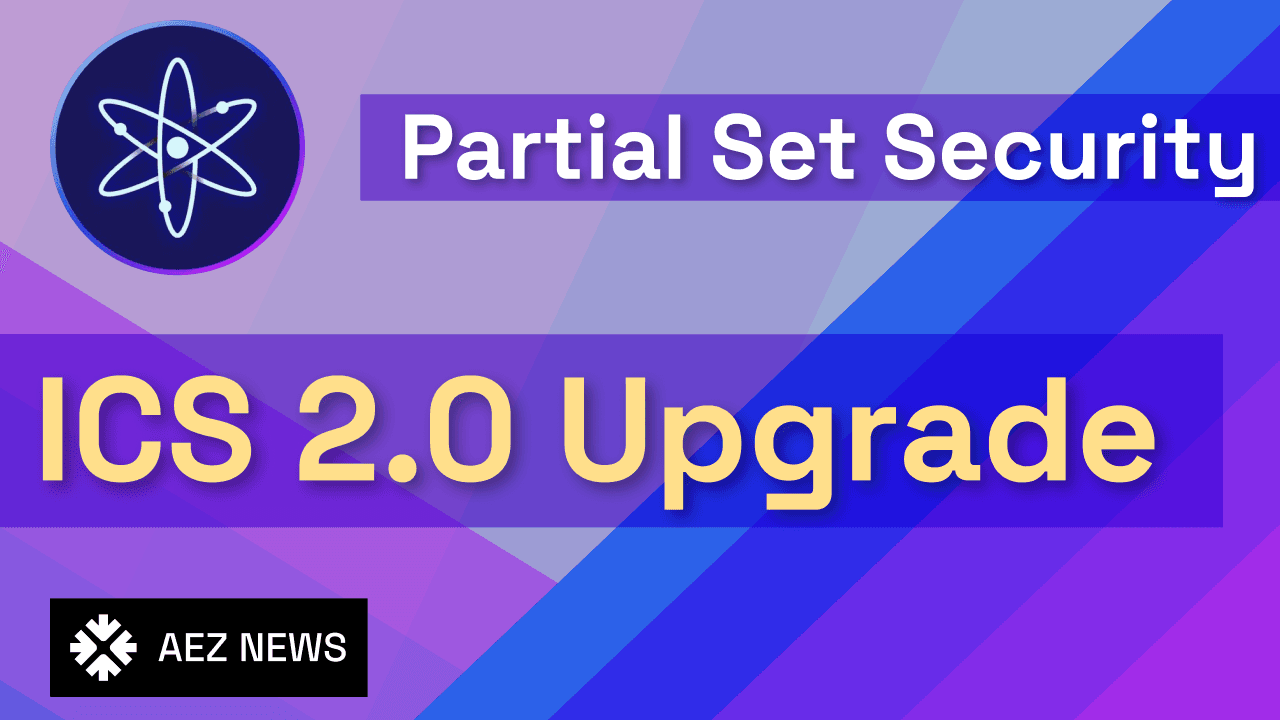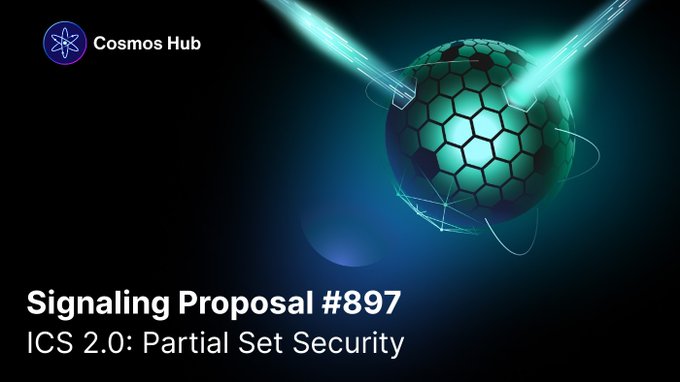Navigating the Cosmos: Introducing Partial Set Security
On the three year anniversary of IBC first going live, The Cosmos Hub & the Atom Economic Zone (AEZ) are kicking off 2024 with a bang.
As of March 29th, 2024, the first on-chain steps towards deploying Partial Set Security (PSS) have been put into motion in the form of a signaling proposal. PSS is a significant upgrade to Interchain Security (ICS) which may fundamentally transforms the way we think about blockchain security & consensus for the foreseeable future.
Let’s dive into the specifics of PSS, its implications for the Cosmos Hub, the AEZ, and the transition from the existing security framework, Replicated Security, to the new PSS system.
Overview of the The AEZ & Interchain Security
For those who need a little context, let’s briefly review what ICS is and how it plays into the AEZ.
Interchain Security is a groundbreaking mechanism that allows validators of a provider chain, such as the Cosmos Hub, to simultaneously participate in the consensus and block validation of a Consumer Chain using their stake on the provider chain. This architecture divides chains into two categories:
- Provider Chain: A blockchain that allows its validators to secure another blockchain using their stake on it’s own chain. In the AEZ, The Cosmos Hub fills this role.
- Consumer Chain: A blockchain that permits validators from another blockchain to participate in its consensus. In the AEZ, all chains other than the Hub are “consumers.”
Chains like Stride and Neutron are able to effectively offer and promise the same level of security as the much, much larger Cosmos Hub to their users and developers. However, the first iteration of ICS was not without it’s downside; thus the evolution to ICS 2.0.
Transitioning to Partial Set Security
Alright, let’s break down how Partial Set Security (PSS), also being called ICS 2.0, shakes up the Cosmos game. In essence, PSS is a revamp of the way security and validator participation work within the Cosmos Hub, bringing flexibility and choice front and center.
The Shift from Replicated to Partial Set Security
Previously, with Replicated Security, every validator in the Cosmos Hub had to run and secure all connected consumer chains, no exceptions. It was a blanket approach – one size fits all. But let’s face it, not every chain has the same needs or offers the same rewards. This is where PSS steps in to mix things up.
The Core of PSS: Opt-in Chains and Top-n Chains
Opt-in Consumer Chains:
- Validator Choice: Validators now get to pick which consumer chains they want to run. It’s all about choice and profitability. If a chain doesn’t seem worth their while, they can skip it without affecting their work on the Cosmos Hub.
- Flexible Commission Rates: Validators can set different commission rates for each consumer chain they participate in. This means they can adjust for the costs and benefits of each chain individually.
- Validator Set Shaping: Consumer chains can tailor their validator set with features like whitelists/blacklists, power caps (no single validator dominating), and choosing a smaller active set for better performance.
Top-n Consumer Chains:
- Guaranteed Security for Critical Chains: For chains that need top-tier security, the top “n” percent of Hub validators are automatically in. It’s like having a VIP security detail, ensuring that the most strategic or valuable chains get the protection they deserve.
- Migration Path for Existing Chains: Chains that relied on Replicated Security, like Neutron and Stride, will shift to a 95% top-n model, essentially maintaining their current security level without a hitch.
Making Launches Easier: The Permissionless Path
Under PSS, new consumer chains can get up and running without jumping through the hoops of a governance proposal. Initially, there’s a “cleared for launch” step to keep things orderly, but the plan is to move to a fully permissionless model where chains can launch freely, opening the door for innovation and growth without unnecessary barriers.
You can find their original proposal text, with more details and a breakdown of these systems, here.
Community Engagement and Decision-Making
The Cosmos community is currently evaluating the PSS upgrade through a live signaling proposal. This means that this proposal doesn’t contain the actual code for the software upgrade, but rather is just a sort of sentiment check with the community. If passed, another proposal with the actual code will follow in the future.

As of 4/2/24, the proposal is still well below Quorum (total votes needed to pass,) but still has 99+% yes votes, and is being well received by the community.
The Future with Partial Set Security
Adopting PSS marks a strategic pivot for the Cosmos network, aiming to enhance its security infrastructure while accommodating the growing diversity and number of blockchains within the ecosystem. This upgrade is not just a technical enhancement; it’s a foundational shift designed to spur further innovation, attract a broader range of projects, and solidify the network’s position as a leading blockchain interoperability platform.
The deployment of PSS is anticipated to catalyze growth, innovation, and collaboration across the Cosmos ecosystem, setting a new standard for blockchain security and flexibility. As we move forward, the focus remains on harnessing the collective strength and vision of the Cosmos community to explore new frontiers in blockchain technology.

